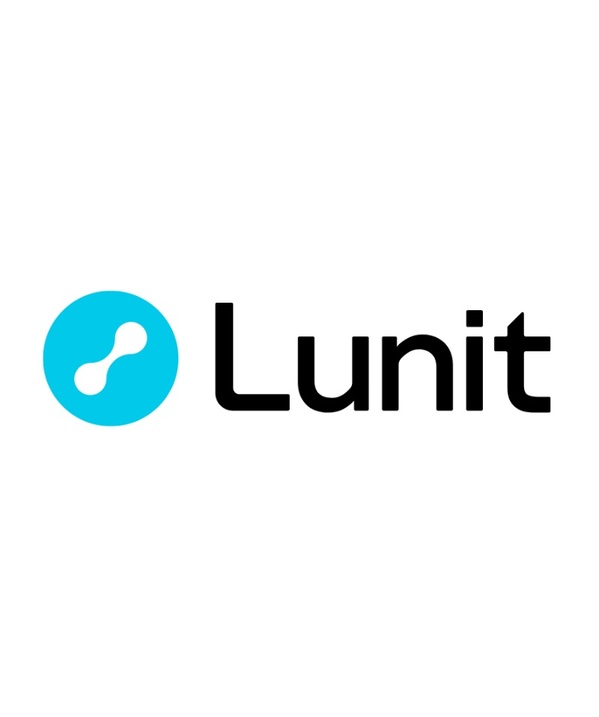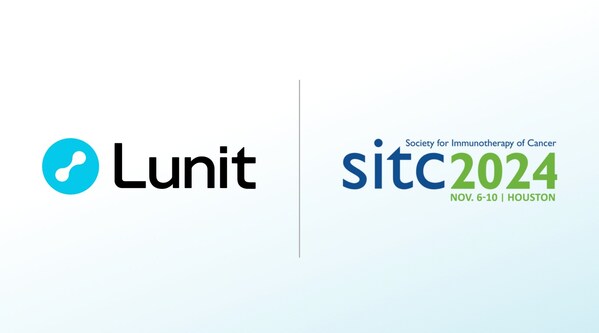
Study reveals potential of AI-powered tumor microenvironment assessment in predicting treatment outcomes in rare cancer patients receiving pembrolizumab
SEOUL,South Korea,Nov. 8,2024 -- Lunit (KRX:328130.KQ),a leading provider of AI-powered solutions for cancer diagnostics and therapeutics,today announced groundbreaking research findings demonstrating the potential of its AI to predict immunotherapy treatment outcomes in rare tumors. Conducted in collaboration with The University of Texas MD Anderson Cancer Center,this study will be presented at the Society for Immunotherapy of Cancer (SITC) 2024 Annual Meeting,held November 6-10 in Houston,Texas. Accepted as a Rapid Oral presentation,the study will be presented by Mohamed Derbala,M.D.,a research scientist at MD Anderson. It has also been selected as one of the SITC TOP 100 abstracts,underscoring its potential significance and impact in the field of immunotherapy.

Lunit and MD Anderson reveal promising AI results at SITC 2024,predicting immunotherapy response in rare cancer patients. (Courtesy of Lunit)
Immunotherapy,particularly immune checkpoint inhibitors like pembrolizumab,has emerged as a revolutionary treatment option for cancer patients. However,not all patients respond equally to this treatment,and predicting who will benefit most has been a significant challenge,especially in rare tumor types where treatment options and research data are limited.
Led by principal investigator Dr. Aung Naing,professor of Investigational Cancer Therapeutics at MD Anderson,the research utilized Lunit's AI-powered whole-slide image analyzer,Lunit SCOPE IO®,to assess tumor microenvironment characteristics in both pre-treatment and on-treatment biopsies from patients with rare tumors receiving pembrolizumab. The study analyzed over 500 slides across more than 10 different rare tumor types.
The findings indicate that Lunit SCOPE IO could effectively identify specific patterns in tumor samples that correlate with better treatment outcomes. The research showed that patients whose tumor samples displayed AI-detected changes in both intratumoral immune cell (intratumoral tumor-infiltrating lymphocyte; iTIL) presence and tumor content,were significantly more likely to have better treatment outcomes positively to immunotherapy treatment.
Key findings from the study include:
In certain tumor types,patients with higher pre-treatment iTIL density showed a 51% lower risk of disease progression or death (improved progression-free survival,PFS; HR: 0.49)
Patients who had greater iTIL density increase at on-treatment biopsy showed a 35% lower risk of disease progression or death (HR: 0.65) and a 41% lower risk of death (improved overall survival,OS; HR: 0.59)
Patients with greater tumor content decrease at on-treatment biopsy had a 49% lower risk of disease progression or death (HR: 0.51) and a 46% lower risk of death (HR: 0.54)
Most notably,patients who experienced both a greater iTIL density increase and tumor content decrease showed dramatically improved outcomes:
68% lower risk of disease progression or death
72% lower risk of death
"These findings highlight how our AI technology can provide deep insights into the unique and challenging tumor microenvironment seen in rare cancers,and represent a critical advancement in our understanding of rare tumor biology," said Brandon Suh,CEO of Lunit. "This study has demonstrated the value of Lunit SCOPE IO in an important clinical setting,showcasing its potential to personalize treatment for patients who have limited therapeutic options. We believe these advancements are a testament to the transformative impact AI can have on oncology and patient outcomes."
By expanding the capabilities of Lunit SCOPE IO,Lunit aims to continue partnering with leading cancer research institutions to deliver innovative and meaningful solutions for patients with limited treatment options,ultimately transforming cancer care.
For more details about the study and its findings,please visit Lunit's booth #317 at the SITC 2024 Annual Meeting.
Abstract #1207,"Artificial Intelligence-powered assessment of tumor microenvironment in pre-treatment and on-treatment biopsies informs treatment outcomes to pembrolizumab in patients with rare tumors." (Nov.9,1:08 p.m.,George R. Brown Convention Center - Level 3 - Grand Ballroom C)
About Lunit
Founded in 2013,Lunit (KRX:328130.KQ) is a medical AI company on a mission to conquer cancer. We harness AI-powered medical image analytics and AI biomarkers to ensure accurate diagnosis and optimal treatment for each cancer patient. The FDA-cleared Lunit INSIGHT suite for cancer screening serves over 4,500 hospitals and medical institutions across 55+ countries.
Lunit clinical studies have been published in top journals,including the Journal of Clinical Oncology and the Lancet Digital Health,and presented at global conferences such as ASCO and RSNA. In 2024,Lunit acquired Volpara Health Technologies,setting the stage for unparalleled synergy and accuracy,particularly in breast health and screening technologies. Headquartered in Seoul,with a network of offices worldwide,Lunit leads the global fight against cancer. Discover more at lunit.io.
Musician Dai Yutong Finds Inspiration in Ancient Xun County: 'True Art Stems from Deepest Roots'
MEXC Releases February Proof of Reserve Report, BTC Coverage Rises to 267%
Dreame Pens a ‘Love Letter to the World’ with Spring Festival Gala Partnership and Times Square Debut
Chinese humanoid robots gallop towards consumer market
CYCJET: Providing innovative marking solutions for industrial intelligence along the Belt and Road Initiative.
Celebrating in the Sky: China Eastern Airlines to Offer Free In-Flight Wi-Fi as Part of Chinese New Year Connectivity Upgrade
©copyright 2009-2020 Singapore Info Map